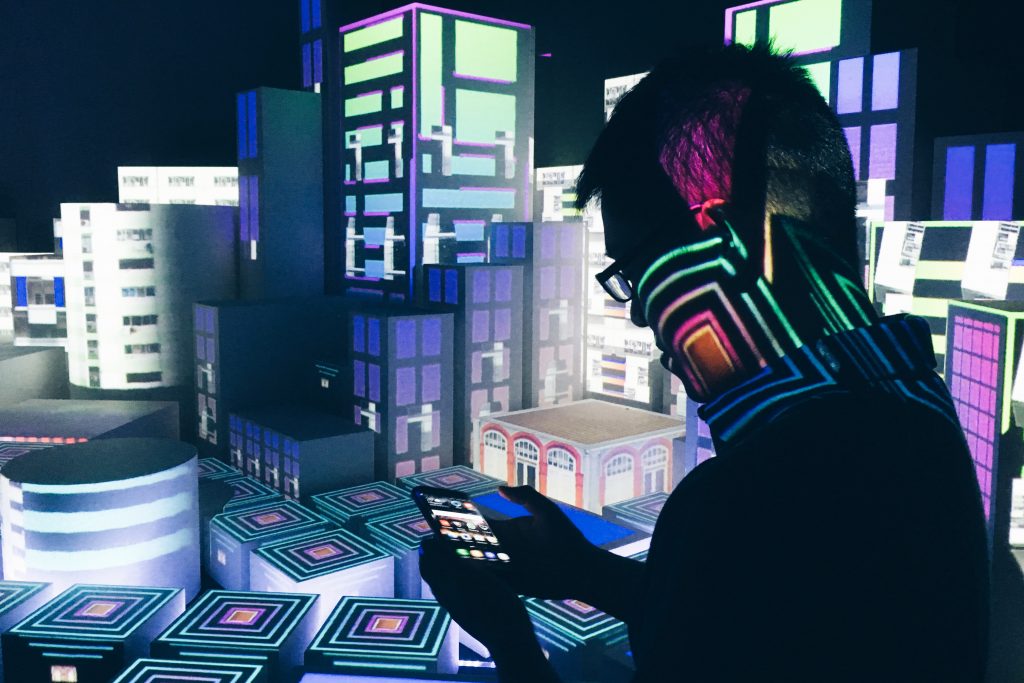Published on
Using AI-Powered Simulations for Students and Employers

In January 2020, just before the demand for online learning skyrocketed, Athabasca University’s Faculty of Business launched a groundbreaking educational experience virtual co-operative program for its undergraduate B.Comm students. The virtual co-op program was developed in response to employer concerns that undergraduate students were not hitting the market work-ready, with the needed professional soft skills to succeed in workplaces.
We housed the new virtual co-op, powered by artificial intelligence, within a senior capstone course, providing a place for interns and co-op students to work. Our first virtual co-op company setting was modelled after a Canadian chartered bank. Students were placed in a management trainee role rather than the typical entry-level co-op experience of running errands or passively observing endless meetings. Instead, students within the virtual co-op engage within a team to evaluate, acquire and market a small FinTech company. Students are expected to apply their disciplinary knowledge to solve problems, conduct analyses and develop and practice professional soft skills.
Students encounter many challenges and obstacles on the road to fulfilling their tasks such as a difficult boss, inept staff, ethical challenges of plagiarism, racism and navigating co-workers’ differing opinions and contributions. As management trainees in this virtual workplace, students quickly learn that not only are their hard skills in finance, accounting or HR challenged but so are their soft or people skills, including the art of persuasion, motivation, emotional regulation and adapting to change. As one student said: “I thought I was good at problem solving, teamwork and leadership. However, these skills failed me when they were put to the test.”
The Financial Services Virtual Co-op has been offered six times in the past two years. To provide students with additional choice, we have added a second co-op experience setting, where students are positioned as high-level consultant trainees in a digital transformation services company. Later this year, we are adding a third co-op in the construction industry. In the new co-op setting, we add equity, diversity, inclusion and inequality bias issues prevalent in that industry. As students in the B.Comm have different disciplinary specialties, we endeavor to provide them with different work experience choices.
To communicate our groundbreaking work, our collegial development team has recently published a peer-reviewed chapter that speaks to the success of the virtual co-op program to date. This publication outlines the design of the co-operative program and the student experiences in developing and practicing soft skills, while applying their B.Comm disciplinary knowledge. Students often report that they have also learned a great deal about themselves from the program. For example, one student reports: “This simulation was not only a learning experience for me in a manager’s perspective—I also learned a lot about myself. I know my managerial style will need to improve, but I will also need to learn to be more empathic.”
Students and their employers will accrue other important benefits from the virtual co-op. First, as noted above, many recent studies suggest employers find that new graduates are not work-ready and lack professional soft skills (Borg & Scott-Young, 2020; Chavan & Carter, 2018; Hurst et al., 2021). While new B.Comm graduates may have the needed technical skills and education in areas like accounting, finance, marketing and human resources management, they may lack experience in appropriate forms of communication. For example, the virtual co-op experience provides not just the skills to do the technical work but also the skill to explain it adequately. Students practice these skills among many others through interacting with seemingly real-life AI-powered characters.
Second, orientation sessions for new employees are often focused on the technical and cultural aspects that bring them up to speed. There is little time for soft skill training in critical thinking, problem-solving, adapting to change or teamwork. The virtual co-op goes beyond book learning on these subjects and puts students in positions where they need to develop and practice these skills.
Third, the COVID-19 pandemic increased the need to work effectively in an online environment. The virtual co-op enhances the skills needed for online work, like sensitivity to an email’s tone in addition to its content. Given pandemic restrictions, this is a new layer of essential skills for new employees, as employers increasingly ask them to work remotely. In doing so, some are engaging with distributed internships and learning. Skills gained in working within the virtual co-op thus put new graduates far ahead on the learning curve.
Finally, the virtual co-op employs a multilevel feedback system, including immediate feedback from the AI, discussion with classmates and the instructor and an individual self-reflection paper reinforcing learning greater soft skills to use in their careers. The feedback system teaches students how to develop their personal and business feedback systems beyond the classroom to become lifelong learners in developing their people skills. Like keeping one’s technical knowledge and expertise up to date, students often realize that professional soft skills development is a lifelong endeavor.
What lessons did we learn?
At every step of our journey, we consider student feedback on their experience and how well their performance meets our learning objectives. Each section of the course is debriefed while students are in the course. We also involve student graduates who have experienced the course in further development and business case-judging.
Work on the virtual co-op is an evolving project and study. We are engaging our faculty to build out new business setting co-op opportunities for students to choose from. We have also started to provide new opportunities using AI tools within other courses at various stages of the B.Comm program. For example, the business communications and writing courses use AI technology to provide immediate feedback and just-in-time learning opportunities to assist students with appropriate business writing. We are also developing a new course on understanding and experiencing organizational culture to allow students to experience cross-cultural issues in the workplace in a new unique way.
We are actively designing learning outcomes for both cognitive and affective learning. We are intent on having students learn and apply their disciplinary knowledge across the various business disciplines, while developing and practicing professional soft skills and uncovering blind spots, unconscious bias and new learning opportunities. In addition to using AI technology, we continue to experiment with other technical tools to benefit learning—whatever brings the subject matter to life in meaningful ways and provides students with unique knowledge and skill-building opportunities.
Author Perspective: Administrator



